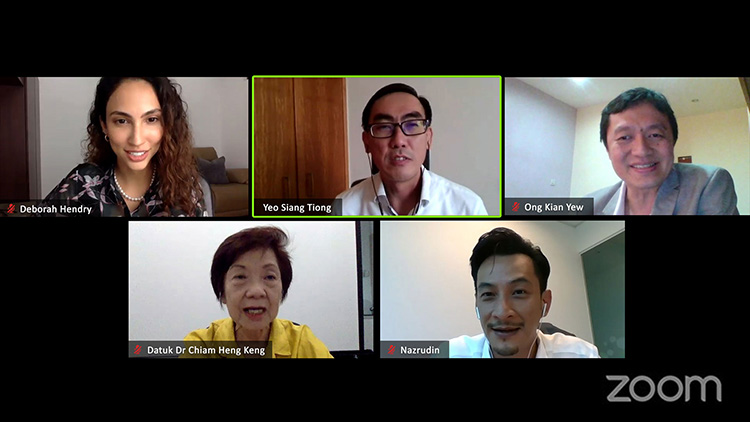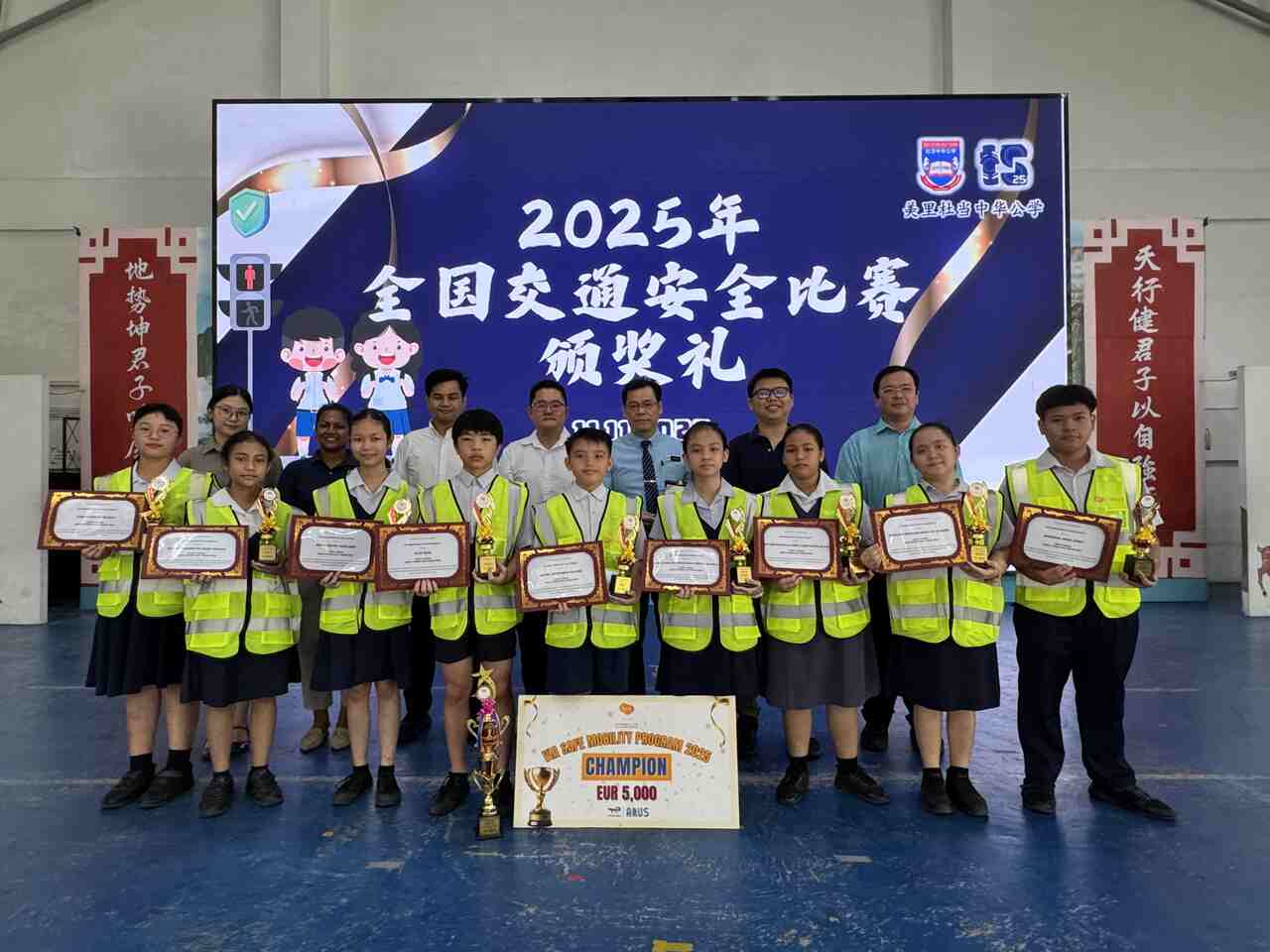
All schools in Malaysia will remain close for the rest of the year to help government efforts to break the Covid-19 chain in the country. In addition, the Education Ministry has urged school administrators to continue the home-based learning for teachers and students.
In conjunction with home-based learning during the pandemic, global cybersecurity company Kaspersky hosted an online forum called “Let’s Talk About Keeping Your Kids Safe Online” conducted via Zoom and to invite-only media audience on November 24, 2020.
A panel of industry experts took part in the engaging forum and discussed how to raise kids who are digital natives, and suggested ways to secure them against cybercriminals.
The panelists included Yeo Siang Tiong, GM for Southeast Asia, Kaspersky; Ong Kian Yew, CEO of PIKOM (National Tech Association of Malaysia); Datuk Dr. Chiam Heng Keng, founding president of The Early Childhood Care and Education Council Malaysia; and Nazrudin Habibur Rahman, a TV host, actor, entrepreneur and father of three.
Deborah Priya Henry, a TV host, model and co-founder of an NGO which focuses on children education, moderated the session.

First on the agenda was Yeo Siang Tiong who provided an update that between March to May 2020, as many as 47%-51% of Malaysian kids spent most of their time online searching for learning materials related to their online classes.
“It is a good sign that kids in Malaysia are using technology in a productive way. Our Digital Comfort Zone Report quantified the increase of internet usage because of the pandemic at up to two more hours every day in Southeast Asia. 63% parents agreed that their children are using the internet more than they did on the same period as compared to last year. Our study also revealed that parents fear for their children’s online safety, but are not putting time to talk about them. Because of these, we are glad to initiate such conversations today,” Yeo said.
Ong gave an equally interesting presentation about parents and students continually seeking the right technology tools needed to support home-based learning; and the recently announced Malaysian Budget 2021, proposed that the relief on lifestyle expenses, such as computer, smartphone or tablet, be increased from RM2,500 to RM3,000.
“We foresee the proposed tax relief will boost the purchases of these smart devices to address any possible shortages to work from home and learn from home. At present, PIKOM members, in general, have already reported positive sales trend throughout the MCO period,” Ong said.
Datuk Dr. Chiam spoke on not attending schools and home-based learning, saying that students missed their friends and doing school activities. She added that younger students are physically active and tend to have shorter attention span. Confinement at home and having parents who are also busy to keep kids interested, may potentially lead the young ones to frustrations, which may be demonstrated through being aggressive, intolerant, uncooperative, and disinterested.
“However, not everything is negative, as there are also many positive aspects of staying and learning at home. Parents can spend time doing things together, exercise together, or just have fun together. Our current situation enhances bonding and offers a perfect time for mothers and fathers to sit down with their kids and discuss things that matter, such as forming online habits to keep them safe,” explained Dr. Chiam.
Nazrudin, a Kaspersky user, commented that he enjoyed the stay at home and home-based learning with his kids but not without its own challenges.
“I learned from Kaspersky that parents who are completely unfamiliar with video games may be tempted to completely ban their children from playing. However, banning is not the healthiest solution. This is because children may have peers that play games at school and by disallowing them from participating, they may feel like an outcast. So there should be a check and balance in parenting.”
“To achieve this balance, I personally install safety nets such as Kaspersky Safe Kids. I agree with Datuk Dr. Chiam, that one of the most effective ways is to be good role models to our kids. For #teamnazrudin, we practice no smartphone during mealtimes and have conversations related to cyber safety, when they are in doubt. We are no experts in this area, but we will learn together,” he added.
Kaspersky shares tips on how to keep children safe online in today’s digital environment:
- Spend more time communicating with your children about online safety measures. Tell your children what must not, under any circumstances, be published on the Internet and why.
- Surf and learn together. Seeing where your kids spend their time online means you can explore how best to keep them safe. Also spending time to play online games, so you can learn from each other.
- Explain that all the sensitive information can be shared only via messengers and only with people you know in real life.
- Install cybersecurity software like Kaspersky Total Security to protect children against online threats, especially when parents are not around to monitor in person.
Kaspersky is a global cybersecurity company founded in 1997 and headquartered in Moscow, Russia. The company’s comprehensive security portfolio includes leading endpoint protection and a number of specialized security solutions and services to fight sophisticated and evolving digital threats.
Kaspersky Total Security is Kaspersky’s top-of-the-range plan and includes Kaspersky Safe Kids which is an advanced parental control app that helps protect children online from harmful content and helps control their digital life. A three-month free trial of Kaspersky Total Security is available at https://bit.ly/safekids011.
To find out more Kaspersky’s security solutions, visit www.kaspersky.com.











